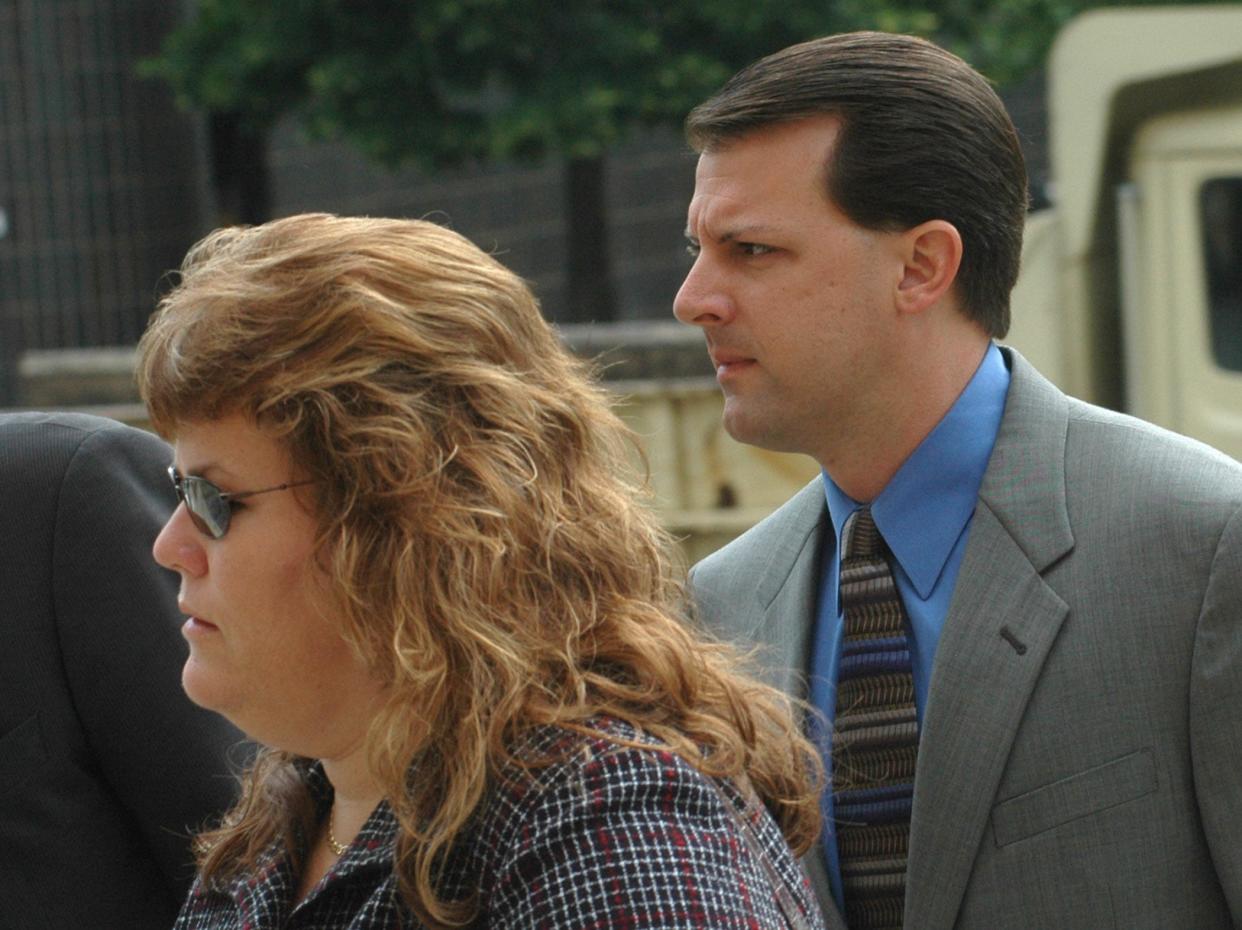Prosecutors say 'prom night murder' conviction should stand in final filings

Questions about blue jeans, Florida mobsters and criminal evidentiary standards are now officially up to St. Joseph County Judge Stephanie Steele as she decides whether Jeff Pelley should get a new trial after he was convicted of the 1989 murders of his father, stepmother and two stepsisters.
Prosecutors early this month filed their final legal arguments regarding the case that's come to be known by the "prom night murders" moniker, arguing that Pelley's conviction following a 2006 trial should stand.
Previously: 'Prom night murder' case delves deeper into father's connections with Florida mob
Pelley, meanwhile, has been on a years-long quest for exoneration that culminated in March of last year with a four-day hearing in front of Steele. There, Pelley and his legal team argued that prosecutors lied or misrepresented key pieces of evidence in the case — including a pair of blue jeans — and that Pelley's lawyers at trial were ineffective.
Pelley says both items violated his constitutional right to a fair trial and he will now wait to find out if Steele agrees with him. Steele could take months to review the court record in the case and make a decision.
If the judge sides with Pelley, the now 51-year-old will get a new trial, though it's possible prosecutors drop the charges against him at that point. If she sides with the state, Pelley will remain in prison and will have lost his last best chance at exoneration.
Lakeville, Indiana murder
Rob Pelley was found dead in an upstairs hallway of his house in Lakeville on April 30, 1989. Dawn Pelley — who was Rob’s wife and Jeff Pelley’s stepmother — was found dead in the basement of the house, along with her daughters (Jeff Pelley’s stepsisters) Jolene and Janel. All four were killed with a shotgun believed to belong to the family.
The case quickly garnered media attention, because Bob Pelley was the minister of Olive Branch Church in Lakeville and the murders occurred on the night of Jeff's high school prom. Rob Pelley had reportedly grounded his son, prohibiting him from attending activities with his friends surrounding the upcoming prom. Investigators believed the friction between Jeff Pelley and his father surrounding the dance could have been motive for the murders.
Though the murders happened in 1989, Pelley was not charged until 2002, and his trial did not take place until 2006, when he was convicted after a jury deliberated for multiple days.
Contested evidence
As stated in both oral testimony and the court files, Pelley’s push for a new trial rests on the claim that his constitutional rights were violated.
Namely, Pelley alleges, prosecutors falsely told jurors that a pair of Jeff’s jeans was found in the washing machine of the Pelley house and had been washed — the implication being that Pelley would have washed them to clean off blood or other evidence after he committed the murders.
Pelley's attorneys pointed to a 2002 evidentiary memo that said 34 coins and a legible receipt were found in the pocket of the jeans — disproving the claim the pants had been washed in the machine
The state's filing, however, says prosecutors at Pelley's original trial said just once in their opening arguments that the jeans had been washed, but otherwise did not present evidence to support that claim. Judges typically give jurors instructions not to treat statements by attorneys as evidence in and of itself, the state wrote, and argued that Pelley's lawyers were free to argue against that claim.
Instead, Pelley's lawyers did not object to the jeans being admitted as evidence because laboratory testing showed no traces of blood on them — a fact that helped Pelley's case, prosecutors said.
Andre Gammage, Pelley’s local counsel during his trial, testified during the March hearing that he didn’t remember why neither he nor lead counsel Alan Baum objected to prosecutors’ assertions that the blue jeans had been washed. When asked if he now thinks that was a mistake, Gammage, who is now a magistrate, answered, “Potentially.”
'Florida facts'
The other main objection from Pelley is that his trial attorneys didn't adequately investigate alternative suspects and motives for the murders and that prosecutors never turned over a key interview with a woman claiming Robert Pelley, Jeff's father, had dealings with organized crime in Florida.
That woman, Toni Beehler, testified at the hearing in March and recalled Rob Pelley telling her “the mob” was going to have him killed because he used to move money for them but had tried to escape.
For Jeff Pelley’s chances at a new trial, the specifics of Beehler’s testimony are less important than the issue of whether or not it was disclosed to his defense attorneys. Pelley's lawyers have argued the tape of Beehler's interview was never handed over.
But the state's most recent filing maintains the testimony was disclosed and even if it wasn't, Beehler's statements are based on hearsay and shouldn't be admissible at a new trial. Pelley's trial lawyers also investigated leads regarding the Pelley family's connections in Florida, but they were a "dead end," prosecutors said.
Steele will now review the extensive record of the case including both recent filings from Pelley and the state, as well as the case's original trial transcript. There is no set timeline for when the judge will reach a decision.
Email Marek Mazurek at mmazurek@sbtinfo.com. Follow him on Twitter: @marek_mazurek
This article originally appeared on South Bend Tribune: Prosecutors argue against new trial in Lakeville, Indiana murder case

